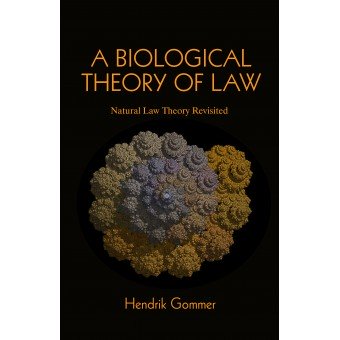18,00
Excl. BTW: 16,51
- Excl. BTW:
- 16,51
- Model:
- Paperback, English
- Levertijd:
- 1-2 werkdagen
Dit boek is alleen in het Engels uitgegeven.
The basis of evolutionary sociology is that our brain will prompt behavior that is to the benefit of the spreading of our genes. Cooperation is such a behavior and is made possible by means of emotion. Rules derive from these emotions and people experience these rules as 'normative' and 'ethical'. We formulate them because they help our genes to spread. This, in a nutshell, is the biological theory of law as described in this book.
Prof. Dawn Oliver (University College London):
´It is difficult to do justice to Gommer's thesis and to the literature with which he engages in this short paper. But it is clear that biological and psychological approaches are at the new cutting edges of public law scholarship and of legal theory: Some public law scholars in the UK are currently pursuing biological and psychological approaches. [...] More public lawyers and legal theorists should work in this area. For those who are looking for a change from what are sometimes to my mind rather sterile, even mystifying, debates about what are conceived to be `out there' values such as democracy, sovereignty, rights, justice, rationality and the rule of law, here is a fertile new `in here' approach which casts those ostensibly `out there' values in a new and less mysterious light. Gommer's book would be a very good place to begin.´
Our brain is a fractal structure that can grow thanks to some genes that contain a code, a formula that generates this structure. The basis of evolutionary sociology is that our brain will prompt behavior that is to the benefit of the spreading of our genes. Although people are unaware of it, they generally behave in ways that optimize the reproduction of their genes. Because they need resources from their environment (in the broadest sense of the word), they will show behavior that is conducive to procuring or securing as many resources as possible. To accomplish this mis-sion, people, being social animals, work together. The older parts of our brain (older in an evolutionary sense) make cooperation possible by means of emotion. The younger parts make it possible to formulate rules that reflect these emotions. In other words, these rules derive from factual, biological mechanisms. People experience these rules as “normative,” and as “ethical,” but even so, these rules are products of evolution. We, that is our brains, formulate them because they help our genes to spread. This, in a nutshell, is the biological theory of law as described in this book. Although philosophers of law and even sociobiologists are reluctant to concur that norms can be justified by biological mechanisms, this is what it takes to make a major step forward in the integration of biology, psychology, sociology, anthropology, and law. This book is a legalist’s implicit answer to the ideas of Charles Darwin, Richard Dawkins, Richard Alexander, James Q. Wilson, Daniel Dennet, Matt Ridley, Frans de Waal, and other sociobiologists. By introducing fractals and important aspects of law, it further enhances our insights in human behavior. Free riders by heart use law to improve their reproduction, and thus feel happy.

